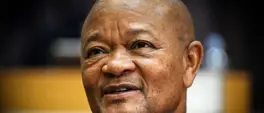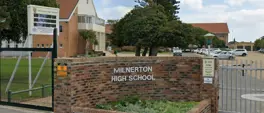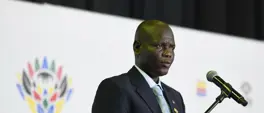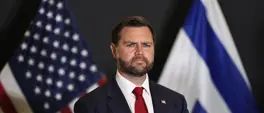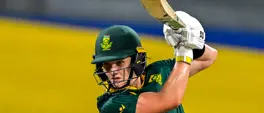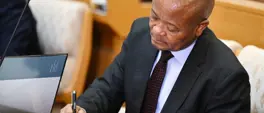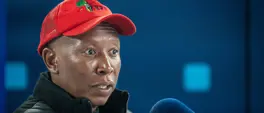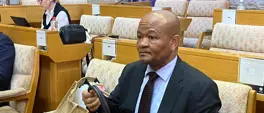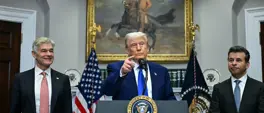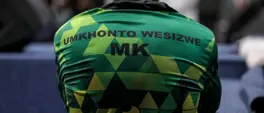MANDY WIENER: The IEC made mistakes, but the credibility of the institution must be supported
Mandy Wiener
30 May 2024 | 4:51The IEC could have been more efficient, but we can’t allow the credibility of the organisation to be undermined in the interests of those who want to threaten our democracy, writes Mandy Wiener.
As millions of South Africans queued to cast their ballots across the country on Wednesday, the efficiency and capability of the Independent Electoral Commission came under intense scrutiny.
The IEC drew criticism and praise in equal measure, depending on personal experience. But as the clock ticked towards 9 pm, the criticism appeared to drown out the praise.
Some polling stations in northern Joburg received ballot papers late, which meant opening delays.
There were extremely long queues reported at many polling stations because of problems with the scanning devices. Either there were too many or the ones they had weren’t working. The addition of a third ballot also meant the entire process of voting just took longer.
Where I was, at Joubert Park in the Joburg CBD, there was chaos for several hours because the scanners weren’t functioning. At the largest voting station in the country, this is a problem that could have been mitigated. With international observers watching on, election officials decided to switch to a manual system to get the queues flowing. This meant a laborious process of searching for names, not necessarily in alphabetical order and then ticking them off a long list.
One of the observers suggested that while they saw areas of concern, overall, they were satisfied with the process.
Unsurprisingly, those who had poor experiences would direct their frustration and anger at the IEC. After all, it had five years to prepare for this election.
However, it is important to remember that the IEC was dealing with significant legislation change for the first time.
Section 24A, a legislated provision which was promulgated in 2021, prohibits people from voting in a voting station where they are not registered without informing the IEC. This coupled with an apparently larger voter turnout than before, meant that specific polling stations were under extreme pressure. Voters couldn’t simply leave and go to a different venue.
IEC Chief Electoral Officer Sy Mamabolo explained that the law was promulgated precisely to protect the integrity of the polls. In a press conference on Wednesday night, Mamabolo explained that it was not there to interfere with the freedom of South Africans, but rather was introduced because in 2019 people claimed that they had voted at more than one voting station.
As far as voter education and training of officials goes, the IEC is also considerably underfunded. The government cut the commission’s funding even further in an election year.
In June last year, OUTA raised concerns that the 2024 elections could be put at risk by the National Assembly passing the Appropriation Bill without addressing the cuts to the IEC.
“OUTA had called on the Standing Committee on Appropriations to ensure that the IEC is fully funded as it faces the first national and provincial elections with independent candidates next year,” it said in a statement. “The IEC has to put up with budget cuts of about R770 million over three years while political parties received an extra handout of R300 million in March through the Represented Political Parties’ Fund (RPPF).”
This is not to say that the IEC is beyond criticism. It could have run a more efficient and smoother election. But to suggest that the mistakes are intentional or that the IEC’s officials deliberately hindered the process in certain parties’ strongholds is far-fetched.
The elections are not being ‘stolen’. The IEC has a highly regarded reputation for running free and fair elections over the past thirty years and there is no reason to impugn that reputation or to assume the worst.
In the run-up to the polls, the IEC did suffer a breach when a staff member leaked the ANC and MK Party lists. However, the commission quickly acknowledged the failure and fired the responsible staffer.
It is blatantly evident that the MK party and its leader Jacob Zuma have already begun to lay the groundwork for a claim that the IEC has failed to ensure the integrity of the elections. Throughout the Electoral Court challenge regarding Zuma’s eligibility and the subsequent Constitutional Court appeal, MK and Zuma have repeatedly cast aspersions on the commission’s credibility.
The Democratic Alliance’s appeal to Western powers to throw resources at observing the polls because it was concerned about the integrity of the voting process was also roundly condemned by the ANC, Ramaphosa and the IEC. There was no evidence to suggest that the process was being undermined.
After casting his ballot on Wednesday, the EFF’s Julius Malema told journalists that he ‘had a suspicion that they want to extend the elections by a day. That's where rigging happens’.
There is no doubt that the IEC made mistakes with its preparedness for this election, and it could have been more efficient. But we must ensure that we don’t allow the unimpeachable credibility of the organisation to be undermined in the interests of those who want to threaten our democracy.
Get the whole picture 💡
Take a look at the topic timeline for all related articles.



